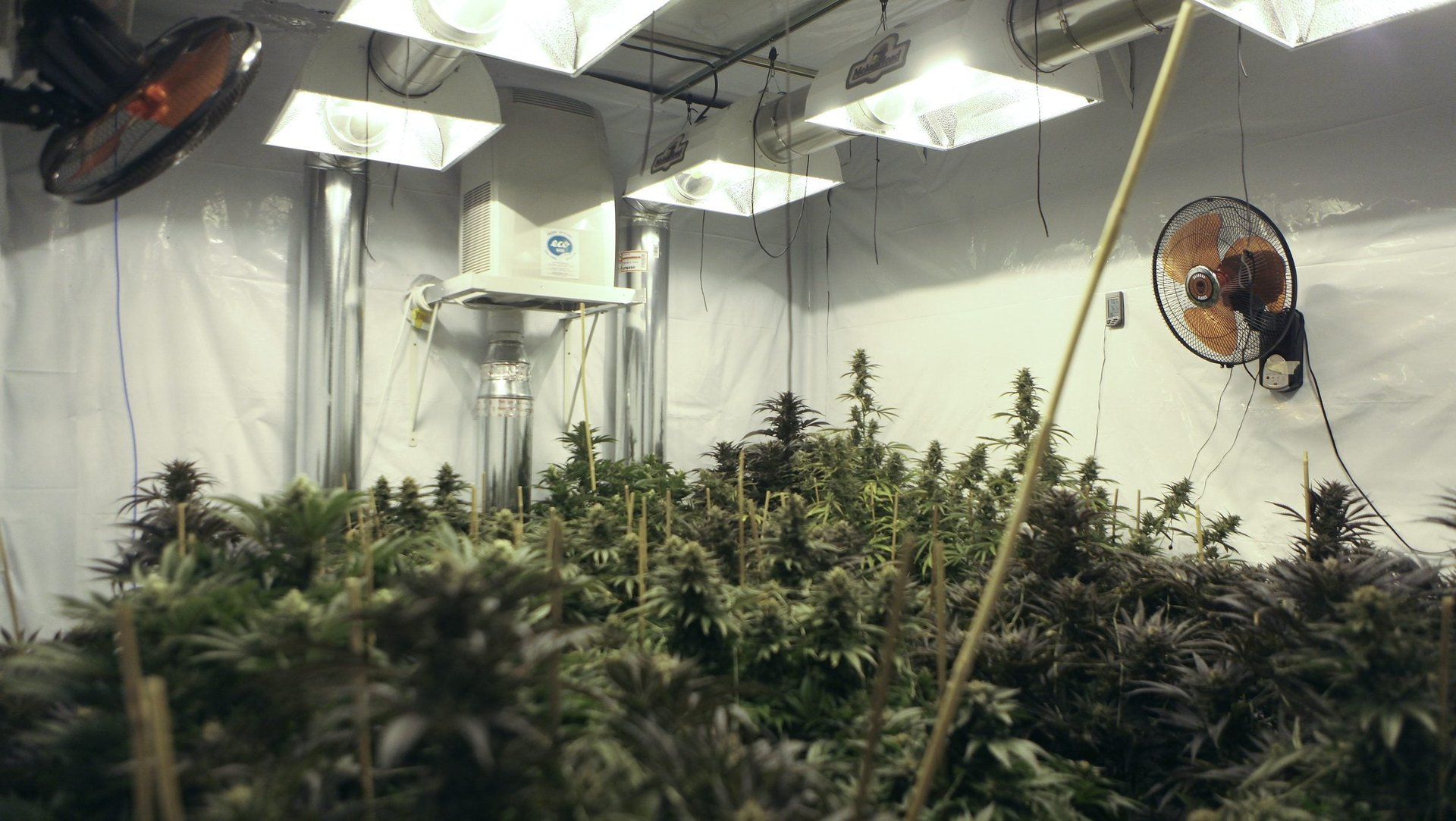Marijuana grows are the new “meth houses,” says the DEA
As homegrown drug operations go, the meth lab is king. Methamphetamine production is known to contaminate houses and spontaneously combust labs, so attempting it requires a scrappy sensibility and serious attention to detail.


As homegrown drug operations go, the meth lab is king. Methamphetamine production is known to contaminate houses and spontaneously combust labs, so attempting it requires a scrappy sensibility and serious attention to detail.
But routine meth usage has never been a reality for more than 0.3% of the US population, despite all its temporary or localized upswings. And over the past few years, data from the US Drug Enforcement Administration shows that meth lab incidents—including lab seizures, dumpsite discoveries and the confiscation of glassware and chemicals—have been in decline.
That might be why the DEA has turned its attention to marijuana. In an intelligence report released in June, the agency said the proliferation of growing operations in Colorado—where pot was legalized for medicinal use in 2000 and recreational use in 2012—is leading to property damage and inter-state trafficking.
The DEA says that houses hosting pot-growing operations are being haphazardly retrofitted to accommodate the needs of marijuana plants: more ventilation (i.e. holes punched through walls), high-powered lights, and air-conditioning (i.e. jury-rigged electrical systems). The agency also says condensation caused by growing can lead to mold, and the use of flammable materials is hazardous to first responders.
“Marijuana grows often cause extensive damage to the houses where they are maintained,” the DEA concludes. “Much like the ‘meth houses’ of the 1990s, many of these homes may ultimately be rendered uninhabitable.”
In Colorado, anyone over the age of 21 can cultivate up to six marijuana plants—more if you’re a medicinal user—but auditing a grower’s inventory can be tricky. In addition to legalizing the possession, use, display, purchase, transport, growing, giving away and consumption of pot, the state’s Amendment 64 also specifies the legality of “assisting another person who is twenty-one years of age or older in any of the acts described.”
Writes the DEA:
Consequently, large grows and/or quantities of processed marijuana within a residence are often justified through the claim that the resident is assisting others by growing or storing their marijuana. As there is no mechanism at the state or local level to document or regulate recreational marijuana home grows, there is no practical means for local police to verify whose plants are grown or whose marijuana is stored in any given residence.
Essentially, Colorado legalized “just holding it for a friend.”
If assessing an at-home operation is tricky for the police, it can only be more so for neighbors, as evidenced by a 1996 DEA tip sheet called “Signs Your Neighbor is Running a Marijuana Grow Operation:”
- Windows have condensation forming due to high levels of humidity
- Unusual traffic, such as a heavy volume of visitors for short amounts of time
- Mail not picked up and garbage not taken out
- Unusual odor omitting from the residence similar to a “skunk” smell
Clearly the line between a professional marijuana outfit and a couple of dudes with a bong can be pretty thin.